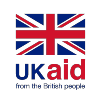Every child who works as a child labourer in Bangladesh’s leather industry has a story to tell. A story of their stolen childhood, a life deprived of the most basic human rights. Many people use the items they produce (shoes, belts, bags, purses etc.) on a daily basis. Yet how these products are manufactured, through a supply chain, and displayed in stores rarely draws our attention. CLARISSA Bangladesh, through the life story collection process, is trying to draw a picture of the lives of child labourers in the leather sector.
Worst forms of child labour in the leather supply chain
A key aim of the programme is to identify the drivers of the worst forms of child labour (WFCL). The leather sector is one of the biggest business sectors in Bangladesh and is known to make extensive use of child labour. Article 3 of the International Labour Organization’s (ILO) convention 182 defines the WFCL as work that by its nature is likely to harm the health, safety, or morals of children. Children who work in leather factories are hidden from the world and not considered legal workers. As informal workers their access to labour rights is limited.
The lives of children working in such conditions, with limited or no safety equipment, are no doubt extremely tough – and not just because of their work. They live in poverty and are deprived of basic rights such as three meals a day, clothes, education, a safe home, and healthcare facilities. The pressure children feel, therefore, to take a job regardless of the work or conditions, to support their families is strong.
Mental health and child labour
The impact on the mental health of these children, of the pressure to contribute financially whilst working long hours, is compounded by the fact that children do not know how to seek help or support for their mental health. This is a vital consideration for CLARISSA and both the Bangladesh and Nepal teams have integrated Mental Health and Psychosocial Support (MHPSS) into the life story collection process.
Working with underprivileged children needs critical attention to avoid doing any harm. At the beginning of the process, Psychological First Aid (PFA) training was arranged for the story collection team. The training taught some very important basics of conversation – active listening, empathetic behaviour, eye contact, timely responses, and deepening questions. Every possible step was taken to make the process more child-friendly. PFA techniques were taught to assist colleagues in managing emotional breakdowns and counselling support, from a professional psychologist, was on hand if needed.
A safe space to share their stories
Children involved in story collection commented that no one had shown any interest in their lives before. For some children, it was the first time they had been given the opportunity to share their stories, and that being able to do so gave them a sense of relief.
A 16-year-old boy from Hazaribagh is addicted to drugs. While talking to his mother, the social worker discovered his childhood had been abusive. From an early age, his father would beat him every time he refused to go to work. He started working when he was nine years old. His mother said that often her son sits on the roof of their house for hours at night. She was very worried but did not know how to help her son.
Later, the Bangladesh team worked with the boy, including him in the training workshop for child life story collectors. He was an active participant, attentive and communicative throughout. The workshop helped him to share his own story, but to also hear others too. These children will also be involved in the analysis process.
There is great scope for further work supporting the mental health of child labourers. Fundamentally, ensuring that the Bangladesh team understands the gravity and the impact of their work on children is a priority – we cannot risk exacerbating the extremely challenging situations that many of these children are living in.
